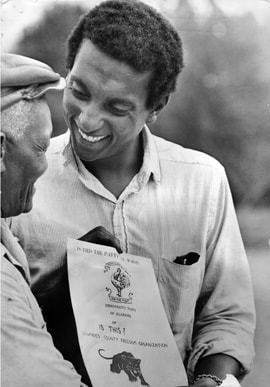
Carmichael was one of the original SNCC freedom riders of 1961 under Diane Nash's leadership. He became a major voting rights activist in Mississippi and Alabama after being mentored by Ella Baker and Bob Moses. Like most young people in the SNCC, he became disillusioned with the two-party system after the 1964 Democratic National Convention failed to recognize the Mississippi Freedom Democratic Party as official delegates from the state. Carmichael eventually decided to develop independent all-black political organizations, such as the Lowndes County Freedom Organization and, for a time, the national Black Panther Party. Inspired by Malcolm X's example, he articulated a philosophy of Black Power, and popularized it both by provocative speeches and more sober writings. Carmichael became one of the most popular and controversial Black leaders of the late 1960s. J. Edgar Hoover, director of the FBI, secretly identified Carmichael as the man most likely to succeed Malcolm X as America's "black messiah". The FBI targeted him for personal destruction through its COINTELPRO program, so Carmichael moved to Africa in 1968. He reestablished himself in Ghana, and then Guinea by 1969. There he adopted the name Kwame Ture, and began campaigning internationally for revolutionary socialist Pan-Africanism.
Ture died of prostate cancer in 1998 at the age of 57.
 RSS Feed
RSS Feed